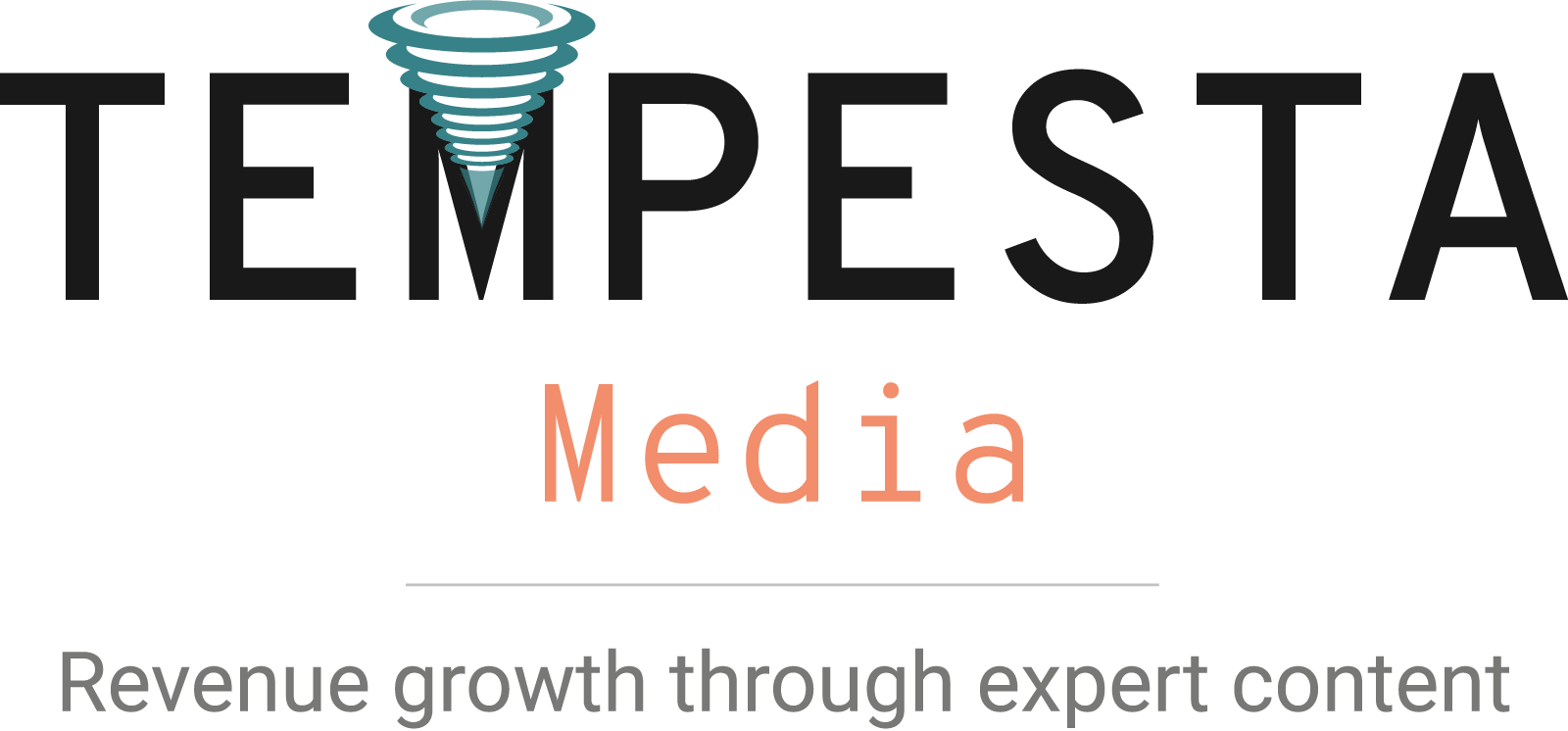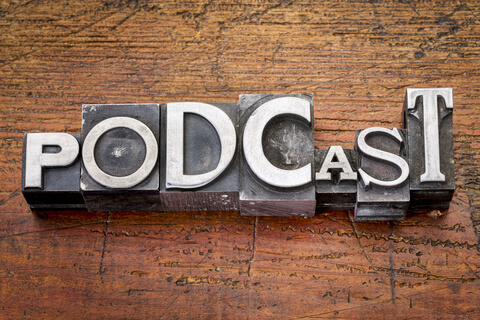With 9 out of 10 marketers using content marketing as part of their overall strategy, you can be sure that the competition to get your message heard is fierce.
Thus, you have to find ways to break from the pack and present unique ways to engage an audience.
On the topic, British businessman Chris C. Ducker, founder of Virtual Staff Finder, touts, “Podcasting has made a massive difference to the growth of my brand, businesses and my audience. I absolutely whole-heartedly suggest that every entrepreneur in the 21st century get behind the mic – and make it soon – because your competition is already planning to, if they haven’t already!”
Podcasting can complement your overall marketing efforts and provide that something different you are seeking. Here are five reasons why adding a podcast to your content marketing can be beneficial.
1. People listen
Edison Research reports that since 2008, the listenership of podcasts has nearly doubled. Additionally, the percentage of Americans who have listened to at least one podcast in the past month has risen from 9 to 17 percent. That’s an estimated 46 million people.
The main reason may be in your hand right now: mobile devices. The rapid rise in mobile devices over the last few years makes them a preferred way to listen to audio, including podcasts. For example, Libsyn, a podcast hosting service, found that of their 2.6 billion podcast downloads in 2014, 63 percent were requested from mobile devices. That is a jump from 43 percent just two years previously in 2012.
These statistics are estimated to rise significantly, based on predictions of smartphone use — German-based Statista Inc. says that by 2016 there will be 198.5 million smartphone users in the U.S. alone – and also the advances in the auto industry and their ability to be Internet connected.
In New York Magazine, Kevin Roose writes, “The secret to radio’s success has always been the drive-time commuter. An estimated 44 percent of all radio listening takes place in the car, and that’s the way the radio industry likes it.”
Today, more and more automobiles are wired with Internet access. This allows podcasters to tap into that highly-valued car-based listener.

2. Relatively inexpensive
You can rent a studio, hire writers and a professional host, but there is no need. Many small businesses have had great success doing their own podcasts and without investing much money at all.
Jesse Thorn, a host of several popular podcasts, including The Sound of Young America, says “The essential skills of podcasting are knowing that you have to have a microphone for everyone that’s talking and knowing the basics of using a microphone.”
If there’s one investment you should make, it’s in a good microphone. When the audio is poor, your content will be ignored and your podcast will suffer. Omnicore digital marketing agency recommends 10 microphones specifically for podcasts. For under $50, they suggest the Samson Go Mic Portable USB Condenser Microphone or the Pyle PDMICR42SL Classic Retro Vintage Style Dynamic Vocal Microphone.
Other investments include a computer with a sound card, high-speed Internet connection and audio editing software such as Garageband for Macintosh or Audacity for Windows.
3. Opportunities are endless
Podcasts allow businesses and brands to become more intimate with their target audience. Consider the fact that by going in through the ears, you are literally getting into someone’s head. You can be more personal and have a deeper relationship with your listeners.
There are a number of ways a podcast can be presented. You can create something where you deliver all the content. However, consider engaging your audience. Do this by bringing in guests, experts and thought leaders to your program. Invite callers or online interaction during live presentations.
But before you do anything, go back to your overall marketing strategy. Examine your goals and define the objectives of your podcast. How will you align with your strategy? What are your success markers? What do you hope to gain from your podcast? What will your listeners want and how will you fulfill their expectations?
Consider reaching out to your target audience through surveys or polls. Ask them for feedback about a possible podcast. See where their interests lie before you make the investment. Doing this will ensure a greater chance of success.
Keep in mind that podcast listeners aren’t looking for long-format shows. Studies by the Content Marketing Institute show that buyers prefer podcasts no longer than 16 minutes. Internet entrepreneur and award-winning podcaster, Daniel J. Lewis says that the frequency of your podcasts will help determine the length. He suggests semi-daily podcasts be no more than five minutes.
Daily shows should be shorter than 15, but can occasionally go 30 minutes. Weekly podcasts should be 15 to 60 minutes. Jesse Thorn reminds, “Many of the most popular and useful podcasts are short, tight and simple. Generally speaking, the simpler the better, and often a part of that is making it shorter. You reduce the chance of trying your audience’s patience.”
As for what to talk about? There are many topics to consider, including:
- Topics that educate clients
- Industry insights
- New trends
- Business plans
- Case studies
- Common questions customers have about the business
- Inspiring ideas from thought leaders and experts in the field
- Debates on business problems
- Open discussions on the state of business
The opportunities truly are endless in regards to what you present and how often you deliver it. Having a plan in place provides you with a roadmap for how to approach your podcasts on a daily, weekly and even quarterly schedule. You want to be committed and consistent with whatever you deliver. Be passionate and engage your audience.

4. Many ways to distribute
Once you’ve got your podcast, there are many ways to get it out to your audience. Probably the most common route is via your company website. But don’t forget about other avenues. Include podcasts in blogs and promote them in social media.
You can reach an even wider audience through services such as Stitcher, iTunes and SoundCloud. Keep in mind that technology is always changing. Other opportunities may present themselves. Keep on top of research that may allow your podcast to be shared via partnerships or emerging technology.
5. Advertising opportunities
One of the great things about podcasts is that they can be recorded and archived, allowing for repeat access by listeners. The other great thing about podcasts is that they don’t have to stand alone as content. There are opportunities to monetize them.
If you post on a regular basis, people can subscribe to your podcast. (This also adds to listener loyalty because subscribers get the podcast sent to them automatically.)
You can also sell advertising. “People really pay attention to the ads,” says Slate’s podcasting guru Andy Bowers. “That’s partly because they have to: The hosts are often right in your ear, and there’s no quick way to change the station, like on a radio. Even scrolling past an ad takes more effort than it’s worth. What if you skip ahead too far?”
Kevin Roose, writing in New York Magazine, found that, “Podcasts can charge higher ad rates because of the personal nature of the single-host format.” Additionally, podcast listeners tend to trust their hosts and, thus, trust what they promote.
When considering advertisements, go back to your marketing plan. Presenting a podcast is one thing, but incorporating ads and running the risk of alienating your audience because they are hearing something they don’t expect can lead to abandonment. Weigh the pros and cons.
Best podcasts
Numerous businesses have podcasts. Here are some of the best as determined by the following organizations:
- Fortune Magazine: 9 great business podcasts you should know
- Fast Company: The 8 Best Podcasts For Business-Savvy Listeners
- Entrepreneur: Top 25 Business Podcasts for Entrepreneurs
- HubSpot, Inc.: The Top Business Podcasts You Need to Be Listening To
- Social Media Explorer: 16 Must-listen business podcasts
If you have a content marketing program, or are planning one, download our ebook: 100 mistakes businesses make when starting, optimizing and scaling content marketing programs. Learn from the mistakes of hundreds of other companies. 100 mistakes walks you through common and uncommon challenges that they faced with their content marketing programs.










